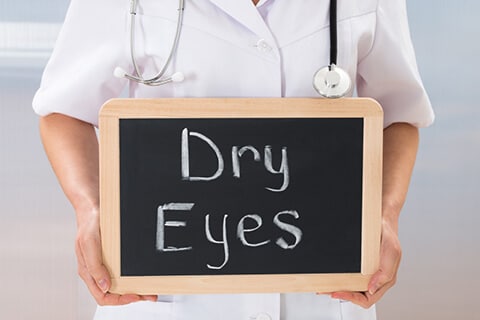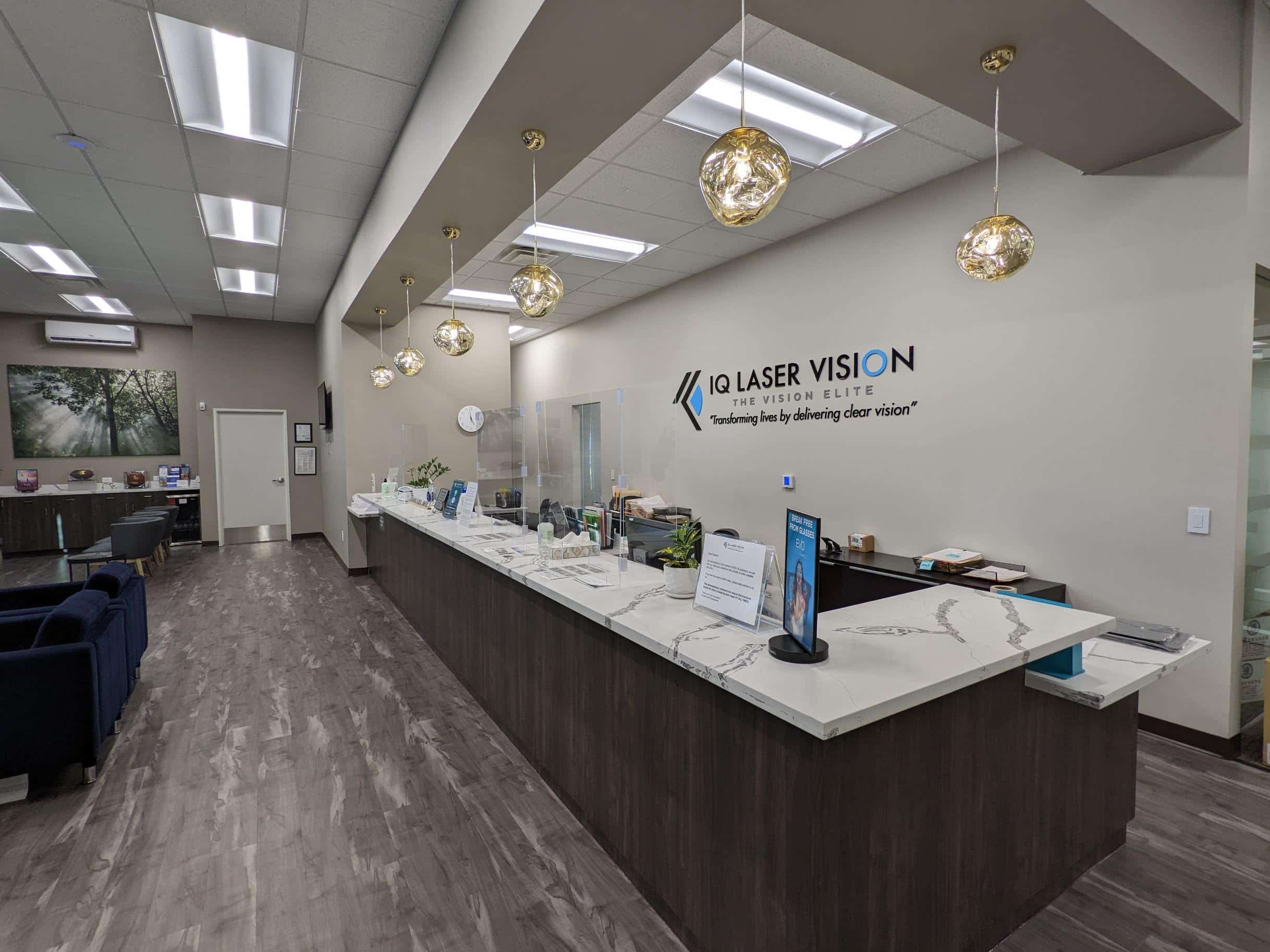Did you know that July is dry eye awareness month? Maybe with it being summer and the air being dry and hot in certain areas of the world, cases of patients’ complaining about dry eyes increases during summer months. Dry eye is often a dismissed condition. Mild cases are brushed off and people just deal with it as allergies. Allergy medications are typically taken to alleviate your symptoms. However, true dry eye disease often affects people to the point of blurry vision and their ability to effectively perform important tasks such as driving or using the computer.

Dry Eye and Chronic Dry Eye are conditions that are a result of poor tear quality. In people with normal tear production, the eye produces a combination of oil, water and mucus elements to saturate the eye naturally. Those who suffer from Dry Eye have trouble producing this mixture.
A Few Common Symptoms of Dry Eyes Include:
• Foreign sensation feeling in the eye
•Itching or scratchiness
•A stinging, burning sensation
•Eye irritation caused by wind, smoke, pollen or air-flown particles
This list isn’t for diagnosis. The only way to know and successfully treat the condition is to see your eye doctor. There are many factors that contribute to Dry Eye. Some of them include hormonal balances such as pregnancy, menstruation, menopause or the natural aging process. Over time, eyes lose much of their lubricating properties. Other causes that contribute are thyroid problems, medical conditions and certain medications. Patients with Dry Eye have reduced ability to create a naturally-occurring tear film that protects. Moistens and cleans the eye; a three-step process that happens every time you blink your eyes. Left untreated, Dry Eye can instigate eye damage, as well as spark infection and disease that may affect your vision.
Alternatives to artificial tears have begun to surface in recent years. With advances in medical research many patients are finding relief through the use of Punctal Plugs, MiboFlo Expression (MBFX) and Blephex. Punctal Plugs are offered in two forms, Collagen. Which are temporary plugs that are placed in your lower puncta acting as a “plug”. They dissolve in approximately a month, whereas Hydrogel Plugs offer a more permanent fix placing form-fitting plugs that permanently blocks the upper puncta. By plugging the puncta, moisture is retained in the eye, keeping it lubricated with the eye’s natural tears.
The MiboFlo Expression (MBFX) is almost a therapeutic experience. When the clogged glands in your eyelids are gently massaged. This helps the eye increase oil production. The presence of oil is vital to keeping the tear film from evaporating too quickly, helping the eye retain a moisture level.
Alternative Treatment Options
Finally, the Blephex treatment is a clinical treatment of the blepharitis through the use of a medical grade micro sponge that removes debris and other microscopic objects from the eyelashes while exfoliating the eyelids. Think of it as a detailing the eyelids and lashes.
Prescription medication is usually the last resort. Although it may be required for severe cases of dry eye. Especially if it has come to affect a patient’s quality of life. Other at-home remedies are available, such as taking fish oil/omega-3 fatty acids supplements, increasing water intake, blinking more frequently, taking breaks every 30 minutes when working in front of the computer all day, removing eye makeup thoroughly, applying warm compression of the eyelids to soften oil buildup around the eye and decrease consumption of alcohol and cigarette smoke.
If you feel you may have Dry Eye, the following questions may help determine it:
- Do you frequently use eye drops or artificial tears throughout the day?
- Have you been using drops for several months or longer and have noticed that you are now depending on it more often?
- Do your dry eyes affect your quality of life, impede you from activities such as computer use, watching television, reading, operating machinery or enjoying recreational activities?
If you answered “yes” to any of these, you may have Dry Eye. Consult with your eye doctor, an optometrist or ophthalmologist and see if there is an alternate solution to the current method you are currently relying on. By improving your overall vision health and sight, you can experience leaps and bounds to your mood and daily life!























